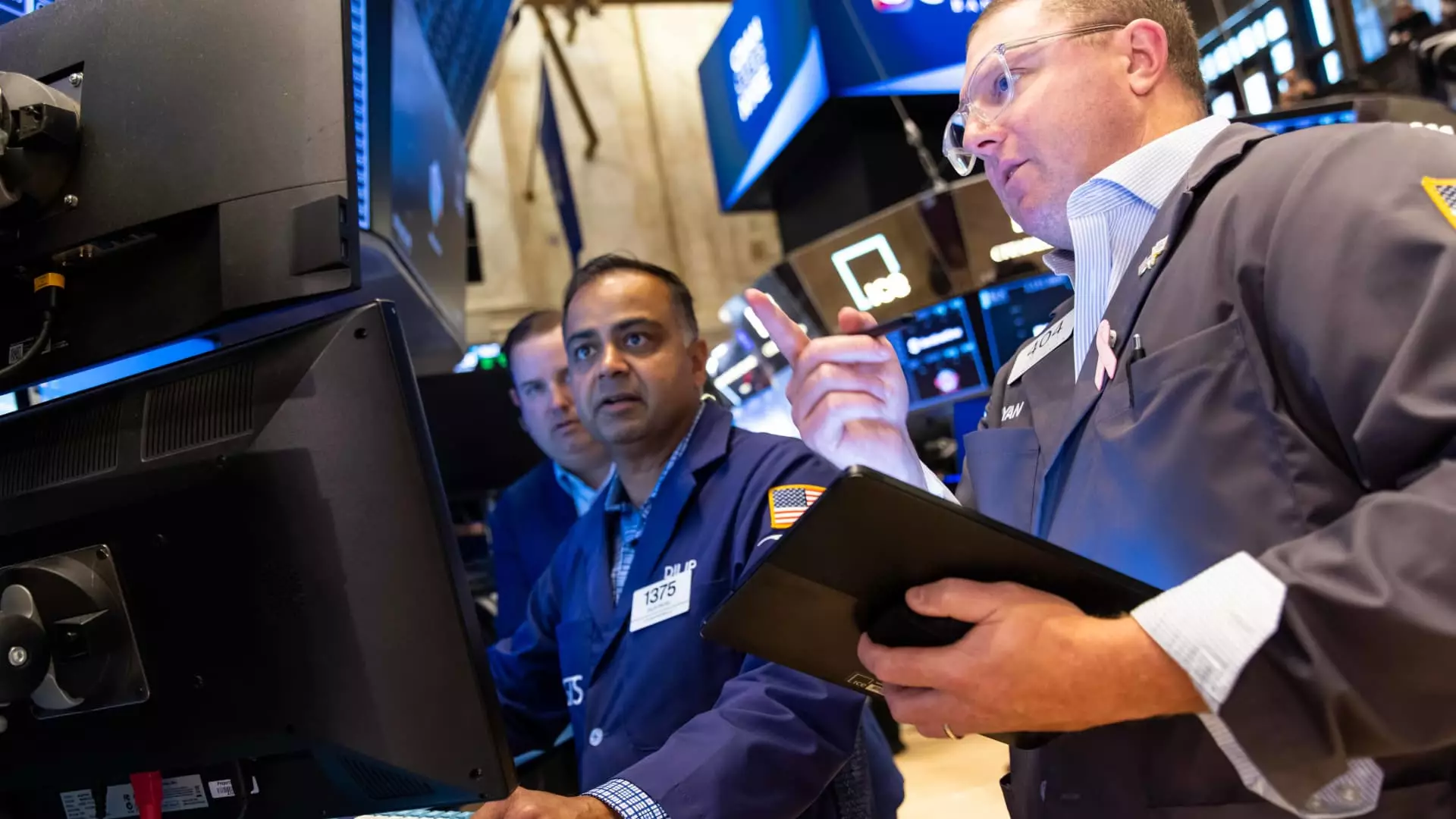Amidst the volatility and uncertainties plaguing the U.S. equity markets, a cautious optimism emerges for investors willing to look beyond traditional borders and familiar tech giants. International equities, once dismissed as secondary players in the grand narrative of American economic dominance, are now being heralded as undervalued gems capable of delivering substantial returns. Developed markets excluding the U.S., exemplified by the iShares Core MSCI International Developed Markets ETF, have surged over 17% this year, signaling a shift in investor sentiment. Emerging markets have shown similar resilience with a 17% rally, challenging the notion that the U.S. is the sole engine of global growth.
This movement is driven by more than just statistical aberrations. It reflects a broader pattern: the normalization of what many attribute to American exceptionalism. The recent gains in international markets are not accidental—they’re a response to a decline in U.S. dollar strength, which makes non-U.S. assets more attractive on the global stage. Despite aggressive trade policies, tariffs, and a seemingly blow-hot-blow-cold stance from policymakers, overseas markets are gradually catching up, indicating a potential shift in the epicenter of economic vitality.
However, investors must approach this paradigm with caution. The rapid appreciation of these markets may be momentary, fed by a low base effect after over a decade of stagnation and underperformance. High valuations in the U.S., compounded by market concentration and stretched multiples, suggest a potential bubble waiting to burst. International markets, although appealing, carry their own risks—political instability, currency fluctuations, and structural economic challenges could easily derail this promising momentum. It would be naive to view these gains as a green light for unrestricted investment without considering the underlying fragility.
The Illusory Promise of Artificial Intelligence as a Market Savior
Artificial intelligence has undeniably become the darling of investors, with the so-called “Magnificent Seven”—a select group of massive tech companies—dominating headlines and harvesting sky-high valuations. JPMorgan’s optimism about AI’s future seems rooted in the belief that this technological revolution will keep propelling markets upward. Still, beneath this optimistic veneer lies a stark reality: the growth within these giants is decelerating, and their soaring valuations might not be sustainable.
Earnings growth estimates tell a cautionary tale—projected second-quarter earnings for these tech titans are around 14%, a significant slowdown from over 27% earlier this year. This deceleration suggests that the easy gains have already been realized. The artificial intelligence theme, rather than being a limitless fountain of profits, risks becoming a crowded, overheated bubble. The initial euphoria, which mainly benefited a handful of large-cap tech behemoths, is giving way to a more nuanced and diversified view of AI’s role in the economy.
Contrary to popular narrative, growth in the AI sector is unlikely to remain confined to the “Magnificent Seven.” Companies in utilities, industrials, and even traditional sectors are starting to integrate AI into their operations, seeking productivity gains and competitive advantages. This evolution hints at a broader, more sustainable adoption of the technology across the economy—yet it also complicates the market landscape, risking over-speculation in areas that may not yet fully deliver on promises.
Furthermore, there is the question of whether AI-driven growth can sustain itself amid rising opposition to monopolistic tech giants, increasing regulatory scrutiny, and geopolitical tensions around data security and technological dominance. What seems like a burgeoning AI boom today could easily collapse into a speculative frenzy, leaving latecomers holding depreciated assets and overinflated valuations. Investors need to critically evaluate whether this artificial growth is truly sustainable or merely a fleeting phase of market exuberance.
Challenging the Narrative: A More Balanced Perspective
While it’s tempting to celebrate the broadening horizons of global markets and technological innovation, a skeptical lens reveals underlying vulnerabilities. International equities may capitalize on a weaker dollar and receding US trade tensions; however, these markets are still dealing with institutional reform pressures and geopolitical risks that could swiftly undermine short-term gains. Their current rally might be more a reflection of recovery from a deep trough rather than genuine strength.
Similarly, the AI theme, though alluring, is built on an unsteady foundation of high valuations and inconsistent earnings growth. Relying too heavily on this single sector to fuel portfolios not only inflates risk but also neglects the importance of diversification and fundamental stability. Yes, AI has transformative potential, but that potential is often exaggerated by market hype. If history is any guide, technological bubbles tend to burst unexpectedly, leaving risk-averse investors nursing significant losses.
There’s a need for a more pragmatic approach—recognizing the opportunity in global diversification and technological advancement but tempered with a clear-eyed understanding of the pitfalls. Market normalization, the unwinding of overextended valuations, and geopolitical headwinds are all part of this complex picture. As investors navigate this landscape, they must prioritize sustainable growth and resilience over chasing fleeting trends or succumbing to the allure of glowing narratives of unending progress.

